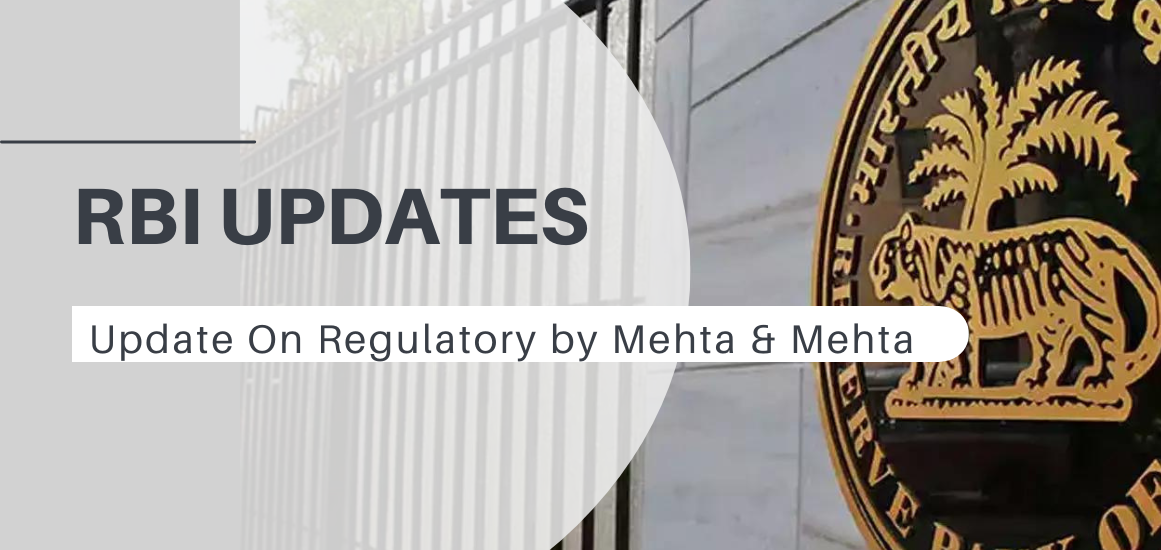



Reserve Bank of India vide its Circular dated 1st December, 2022 having regard to the circular DBOD.No.BP.BC.89/21.04.141/2008-09 dated December 1, 2008 and circular DBOD.No.BP.BC.111/21.04.157/2013-14 dated May 12, 2014 issued instructions to Indian banks and AIFIs on the issue of dealing in financial products by their branches/subsidiaries operating outside India. On a review, it was felt that a framework needs to be in place to allow them to undertake activities which are not specifically permitted in the Indian domestic market and also to specify the applicability of these instructions to International Financial Services Centers (IFSCs) in India including Gujarat International Finance Tec-City (GIFT City).
| Applicability and commencement These directions are applicable to all banks regulated by the Reserve Bank (excluding co-operative banks, Regional Rural Banks and Local Area Banks) and All India Financial Institutions (AIFIs) and shall come into immediate effect. Dealing in financial products The foreign branches/foreign subsidiaries of Indian banks/AIFIs can deal in financial products, including structured financial products, which are not available or are not permitted by the Reserve Bank in the domestic market without prior approval of Reserve Bank, subject to compliance with conditions specified below in paragraph 3 and those prescribed by the host regulator. Further, the branches/subsidiaries of Indian banks/AIFIs operating in IFSCs including those operating out of GIFT City may also deal in financial products, including structured financial products, which are not available or are not permitted by the Reserve Bank in the domestic market subject to compliance with all applicable laws/regulations and conditions stipulated below in paragraph 3 and those prescribed by the host regulator. Conditions for dealing in financial products While allowing branches/ subsidiaries in foreign jurisdictions as well as in IFSCs to deal in such products, the parent Indian bank/AIFI shall ensure that: dealing in such products is done with the prior approval from their Board and, if required, the appropriate authority in the concerned jurisdictions.they have adequate knowledge, understanding, and risk management capability for handling such products.they act as market makers for products only if they have the ability to price/value such products and the pricing of such products is demonstrable at all times.their exposure and mark-to-market (MTM) on these products are appropriately captured and reported in the returns furnished to the Reserve Bank. They shall provide information about dealing in such financial products as may be specified by the Reserve Bank in the manner and format and within the time frame as prescribed by the Reserve Bank.they do not deal in products linked to Indian Rupee unless specifically permitted by Reserve Bank.they do not accept structured deposits from any Indian resident; andthey adhere to the suitability and appropriateness policies as mandated by the Reserve Bank and the host regulators, as applicable. Compliance with prudential norms The financial products dealt with by the foreign branches and subsidiaries as well as IFSCs shall attract the prudential norms such as capital adequacy, exposure norms (including Large Exposure Framework), periodical valuation, and all other applicable norms. Parent bank shall adhere to more stringent among the host and home regulations in respect of prudential norms and if the current norms of the Reserve Bank do not specify prudential treatment of any financial product, the parent bank/AIFI shall seek specific guidance from Reserve Bank. Activities subject to Indian laws The activities of branches/subsidiaries in foreign jurisdictions and IFSCs shall be subject to the laws in India, unless specifically exempted by law. Repeal of earlier instructions The below circular shall nullify: Circular DBOD.No.BP.BC.89 /21.04.141/2008-09 dated December 1, 2008; andCircular DBOD.No.BP.BC.111/21.04.157/2013-14 dated May 12, 2014. |